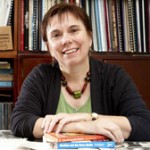Over the past decade or so, the academic study of religion has become infused with a (re-)appreciation of  the importance and impact of space, place and location upon its field of study. Of course, scholars have for a long time been aware of the need to situate ‘religion’ in context, however, the spatial analysis goes far beyond mere description of physical or cultural spaces, attending to the materiality and embodiment of ‘religious’ actions, thoughts, feelings, expressions etc and the reciprocity between individuals and the many different physical, social, intellectual, emotional, historical etc spaces in which they move.
the importance and impact of space, place and location upon its field of study. Of course, scholars have for a long time been aware of the need to situate ‘religion’ in context, however, the spatial analysis goes far beyond mere description of physical or cultural spaces, attending to the materiality and embodiment of ‘religious’ actions, thoughts, feelings, expressions etc and the reciprocity between individuals and the many different physical, social, intellectual, emotional, historical etc spaces in which they move.
At a basic level, we can all think of obvious examples of formalised sacred spaces – but what about the religious character of ostensibly secular locations such as street corners, restaurants, or university campuses? What has been the effect of the development of, and engagement with, the internet? What about physical spaces which are transitory in nature, such as shared or multi-faith worship spaces, airport prayer rooms, or sports halls? What are the effects of our own bodies and the embodiment of others? What are the spatial properties of extension through time and across the globe? In this podcast, Chris is joined by Professor Kim Knott, Professor of Religious and Secular Studies at Lancaster University, and author of The Location of Religion: A Spatial Analysis (2005), to discuss these questions, to present the methodology she developed to attempt to tackle such questions, to give practical examples of this methodology in a number of different contexts, and much more. In fact, the air conditioner in the room where this interview was recorded acts as a prime example of the impact that a ‘space’ can have…
Podcast: Play in new window | Download | Embed
Subscribe: RSS
You can also download this interview, and subscribe to receive our weekly podcast, on iTunes. And please, take moment to rate us.
In the conclusion of her recent article in the journal Religion (2009), Knott asks ‘What are the scholarly merits of studying religion in local perspective?’ She replies:
An examination of specific places (whether physical, social or discursive) and localised religious groups, places and activities challenges the conception of ‘World Religions’ as unities focused on discrete, systematic sets of traditions, and normative beliefs and practices. In fact, it is possible that some religious people and organisations forged in particular localities become more interconnected and akin to each other than they are to those at a distance with whom they share a formal religious identity. […]
Studying religion in locality also signals a move away from the modernist regime of collecting, classifying and comparing data towards seeing religion as a plural, dynamic and engaged part of a complex social environment or habitat that is globally interconnected and suffused with power. Re-engaging it with what has traditionally been seen as its ‘context’ helps us to reconnect ‘religion’ with those other categories – ‘society’, ‘politics’ and ‘economics’ – from which has been separated for the purpose of classification and study (Fitzgerald, 2007). In focusing intensively on particular bodies, objects, groups or places, we begin to see the difficulty and erroneousness of distinguishing ‘religion’ from other social fields in order to investigate it without meaningful reference to its context. Such an act of scholarly reconnection inevitably requires a multidisciplinary and polymethodic process that brings a researcher into engagement with others within and beyond the study of religions who approach the study of that body, object, group or place and what goes on within it from sociological, geographical, cultural, historical, anthropological and economic perspectives using a variety of fieldwork and textual methods. (2009, 159)
Kim Knott is Professor of Religious and Secular Studies at Lancaster University. She works on contemporary religion and the ‘secular sacred’, and their interrelationship. She developed a spatial methodology in Jolyon Mitchell, in L Woodhead and R Catto (eds), Religion and Change in Modern Britain (2012). She participates in a large programme of research on ‘Religion and Diversity’, funded by the SSHRC in Canada and hosted at the University of Ottawa, and has been an international advisor in international projects on ‘The Religious Lives of Migrant Minorities’, ‘Religious Pluralisation in Europe’, ‘Living with Difference’, and ‘Multi-Faith Spaces’. She has been on working groups, commissioning panels and advisory boards for several UK research council research programmes: ‘Religion and Society’, ‘New Security Challenges: Radicalisation – A Critical Reassessment’, and ‘Connected Communities’. She is currently on the editorial boards of the journals Religion, South Asian Diaspora, Journal of Contemporary Religion and Fieldwork in Religion and was General Secretary of the European Association for the Study of Religion (2005-10) and President of the British Association for the Study of Religions in the 1990s. A full bibloography and more information can be found on her departmental web page.
[From 1 October 2012 she will also be Chris’s supervisor when he begins his PhD in Religious Studies at Lancaster University]
This interview was recorded at the Why are Women more Religious than Men?” and David Morgan on Material Religion.
References:
- Knott, K. 2009, ‘From locality to location and back again: A spatial journey in the study of religion’, Religion, 39:2, 154-60.







